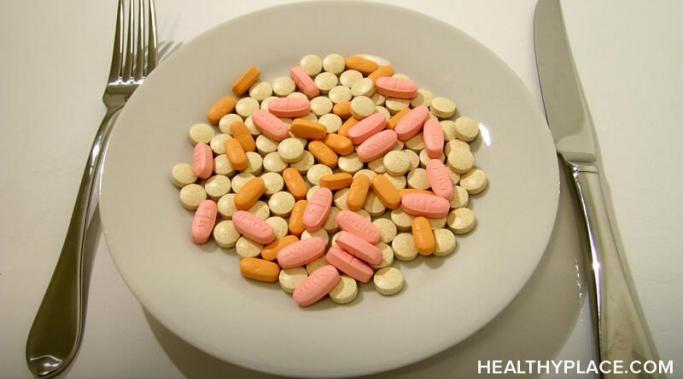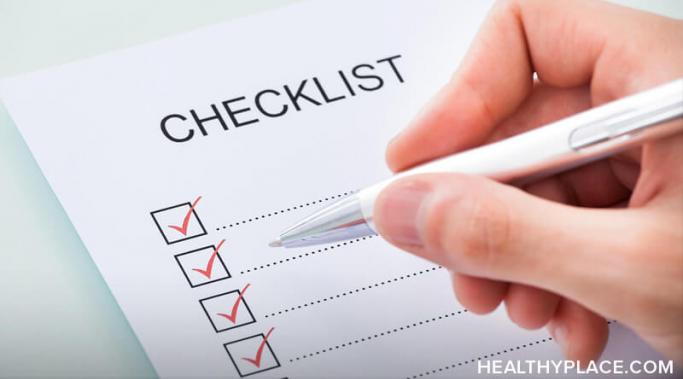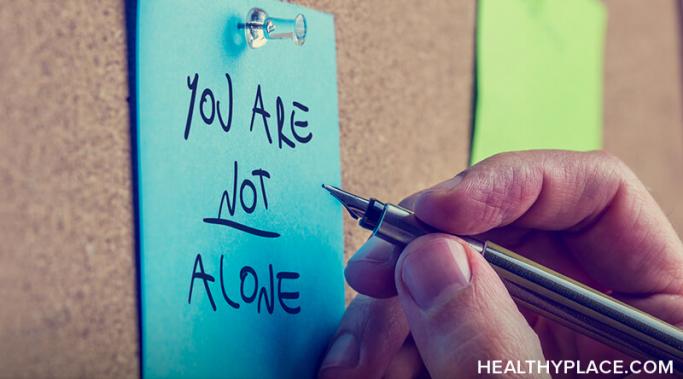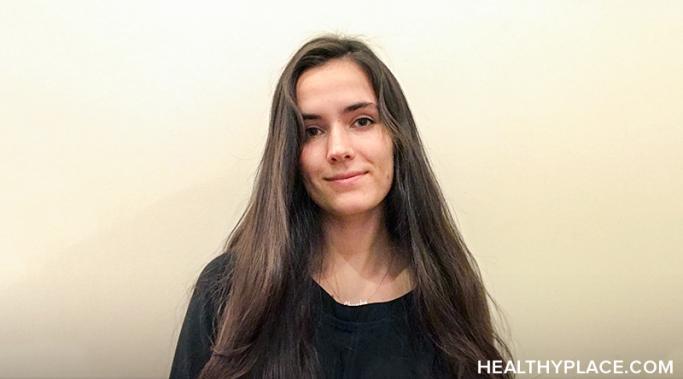There are several effects selective-serotonin reuptake inhibitors (SSRIs) might have on your relationships. Here are three common ways an SSRI might affect your romantic relationships.
Relationships and Mental Illness
My cycle of restriction has the ability to hurt my relationships. Take today, for instance.
My name is Miranda Card and I’m excited to join the HealthyPlace team as a writer for "Relationships and Mental Illness." Many of my experiences with mental illness stem from a lifelong struggle with chronic illness, a disease known as Behcet’s. Only now, at 24, am I beginning to understand the trauma of my diagnosis. I am only now beginning to acknowledge that my illness has symptoms beyond the physical; it has ravaged my relationship with food and birthed disordered eating; it inspires anxiety that affects my decisions in life; the depression that comes with my medication often wreaks havoc on my relationships. Discussing these things in writing never occurred to me before because these “mental symptoms” have always been a source of shame and denial. But someone told me recently to write about what scares you, so here I am.
The symptoms of my sexual assault affect my relationships by cropping up in unexpected ways, years after the traumatic event. As I slowly came to terms with what happened to me, these symptoms began to interfere with my romantic relationships in a variety of ways, both subtle and overt. I tried to navigate these symptoms of sexual assault and the further I strived to avoid them, the further they popped up unexpectedly and uninvited. Over the years, I have discovered that there are several things that my partner and I can do to help ease my mind and work towards understanding the aftermath of my assault.
Assertive communication works well when it comes to my communication styles. I have a history of vacillating between aggressiveness and passivity in relationships. Both of these styles come with their downsides and it's been an arduous journey to find an effective middle ground. Assertive communication is my middle ground.
It's good for me to self-disclose about my mental illnesses earlier in relationships rather than later. You see, when I received my diagnosis of generalized anxiety disorder and began taking antidepressants in middle school, I felt my identity shift. Finally, I had a name and a treatment for the frustrating and complicated symptoms I had experienced since I could first walk and talk. For so long, my identity and mental health were inextricably intertwined, and they still are.
Anxiety made me "that annoying friend" early in life. I vividly remember the first time that my generalized anxiety disorder (GAD) inserted itself, without invitation, into my relationships. I was in third grade, playing in the sandbox during recess when I found out that Jess (names changed) had invited Katrina to see the new Shrek movie but hadn't extended the invitation to me. I remember being devastated and insecure. For the remainder of recess, I moped around the chain-link fence by myself, kicking up patches of dirt while negative thoughts swarmed my head. Why hadn't she invited me? What was wrong with me? These tentative thoughts soon turned into statements taken as fact. My friends hate me. Nobody likes me. I am an annoying friend and useless. I didn't talk to anyone else for the rest of that day.
My name is Hannah O’Grady, and I am ecstatic to say that I am the new author for Relationships and Mental Illness here at HealthyPlace. Mental health has played an important role in my life, both personally and professionally. I am eager to combine my passion for writing, relationships, and mental health for my readers, and I look forward to engaging with those who read this site.
Am I happy, manic, or maybe euphoric? Knowing my mood (and what may be causing it) is important to managing bipolar disorder. One of my triggers is interpersonal relationships which are, for many people out there, one of the largest factors in our moods. When things are going well, it can lead to happiness; conversely, when things are going poorly, depression is a real possibility. Today I want to focus on the other side: happiness. Specifically, how does one with mental illness identify what is true happiness, versus a manic or hypomanic phase, or what I call the euphoria of coming out of depression? Am I happy, manic or euphoric? Here's how I decide.
You probably should expect less from people because people are going to disappoint you. Let me repeat that. People are going to disappoint you. This is a widely understood truth in the world and applies to everyone. For those of us with mental illness, the dynamic changes a little bit. Here is why we should expect less from people and why we shouldn't.









